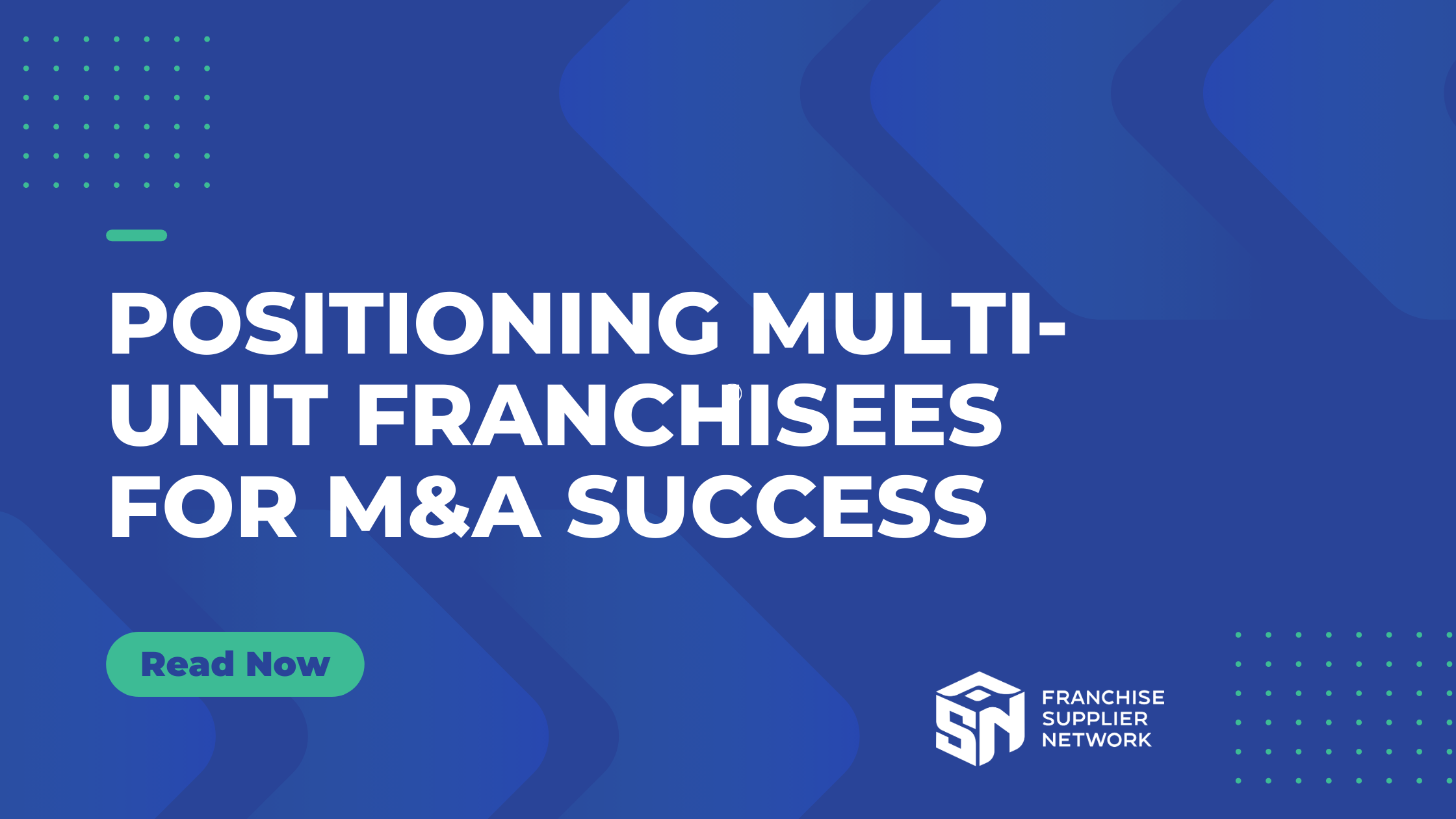Ready, Set, Acquire: Positioning Multi-Unit Franchisees for M&A Success with Leasecake

For multi-unit franchisees, growth through acquisitions represents a pivotal opportunity to scale operations, increase market share, and achieve new levels of profitability. However, the road to a successful merger or acquisition is complex and requires strategic preparation. Whether acquiring an existing franchise portfolio or integrating new locations into an established system, careful planning can mean the difference between seamless growth and operational headaches.
Here are practical steps for franchisees to ensure they’re prepared to identify, evaluate, and integrate acquisition targets successfully:
1. Build a Strong Foundation
Before pursuing acquisitions, take the time to ensure your own business operations are running smoothly. A clean and well-organized operation makes financing and negotiations far easier. Start by auditing critical business components:
- Financial Health: Ensure accurate and transparent financial records, including profit-and-loss statements, cash flow data, and location-specific performance metrics. Consider completing a Quality of Earnings (QoE) analysis to demonstrate financial stability and identify areas for improvement.
- Technology Infrastructure: Evaluate your tech stack, including point-of-sale systems, lease management tools, and inventory software, to confirm scalability and operational efficiency. Modern, integrated technology platforms signal to sellers and lenders that your business is prepared for growth.
- Operational Strength: Streamline processes and identify areas for improvement, such as employee training, customer satisfaction, and compliance. A well-run operation reflects a readiness to take on new challenges.
2. Evaluate Potential Targets
Finding the right acquisition target involves more than just identifying available opportunities. The goal is to acquire a portfolio that aligns with your strategic goals and complements your existing locations. Key areas to evaluate include:
- Financial Viability: Review the target’s financial statements, debts, and liabilities. Understand the revenue potential and any hidden risks that could impact profitability.
- Lease and Real Estate Portfolio: Assess the quality and stability of the target’s locations. Consolidate lease agreements, renewal options, and critical dates into a centralized system to minimize disruptions during integration. Identify underperforming locations and calculate their potential impact on your overall portfolio.
- Franchisee and Customer Relationships: Evaluate the existing franchisee satisfaction and customer loyalty. A strong relationship with franchisees ensures smoother transitions, while customer loyalty drives ongoing revenue.
3. Prepare for Integration
Acquiring a franchise portfolio is only the beginning. Successful integration is where long-term value is created. To position yourself for success:
- Plan Operational Changes: Develop a detailed integration plan that aligns with your business objectives. This might include rebranding, adopting new processes, or introducing technology upgrades.
- Retain Key Talent: Work closely with existing teams at acquired locations to ensure a smooth transition. Retaining experienced employees and franchisees fosters continuity and minimizes disruption.
- Standardize Processes: Integrate the acquired locations into your existing systems while respecting the unique aspects of the acquired business. Consistent training, communication, and support ensure operational alignment.
4. Leverage Technology for Efficiency
Technology plays a critical role in making the M&A process more efficient and reducing the risk of errors or delays. For multi-unit franchisees, having the right digital tools in place simplifies the organization and management of critical information, providing clarity to buyers and confidence during negotiations.
- Centralized Real Estate Management: A lease management platform consolidates lease agreements, renewal options, and critical dates into one easily accessible system for what is likely one of the biggest expenses on a company’s balance sheet. Having a solid system in place ensures all necessary documents and deadlines are accounted for, reducing the risk of surprises during due diligence.
- Financial Transparency: Accounting software and reporting tools generate detailed financial reports, making it easier to share accurate, location-specific performance data with potential buyers. Automated tools also highlight trends and identify inconsistencies that may require attention before the transaction.
- Operational Oversight: Inventory management, point-of-sale (POS) systems, and employee scheduling tools provide insights into day-to-day operations. Buyers value businesses that are run efficiently and can quickly assess the health of the business through these systems.
- Data Sharing and Collaboration: Secure data rooms or cloud-based platforms allow all stakeholders to access critical documents and collaborate in real time, speeding up due diligence and reducing administrative bottlenecks.
By leveraging technology to organize and present your business information, you minimize delays, enhance buyer confidence, and ensure the transaction proceeds smoothly.
5. Think Long-Term
While acquisitions offer immediate growth, the real benefits come from long-term value creation. This means continuously optimizing your portfolio, investing in top-performing locations, and divesting underperforming assets when necessary. Proactively monitor financial performance, market trends, and customer needs to ensure your franchise system remains competitive.
Takeaway
For multi-unit franchisees, growth through mergers and acquisitions is both an opportunity and a challenge. By preparing your business, evaluating potential targets thoroughly, and executing a thoughtful integration strategy, you can position your portfolio for long-term success. The rewards of a well-executed acquisition extend far beyond the deal itself, setting the stage for smoother operations, stronger financial outcomes, and sustainable growth in the franchise industry.
Leasecake is lease and location management made easy for the franchise industry, providing a pain-killing application that helps proactively oversee one of the largest risks in their business – their real estate leases.
Get connected with Leasecake here!
Back
